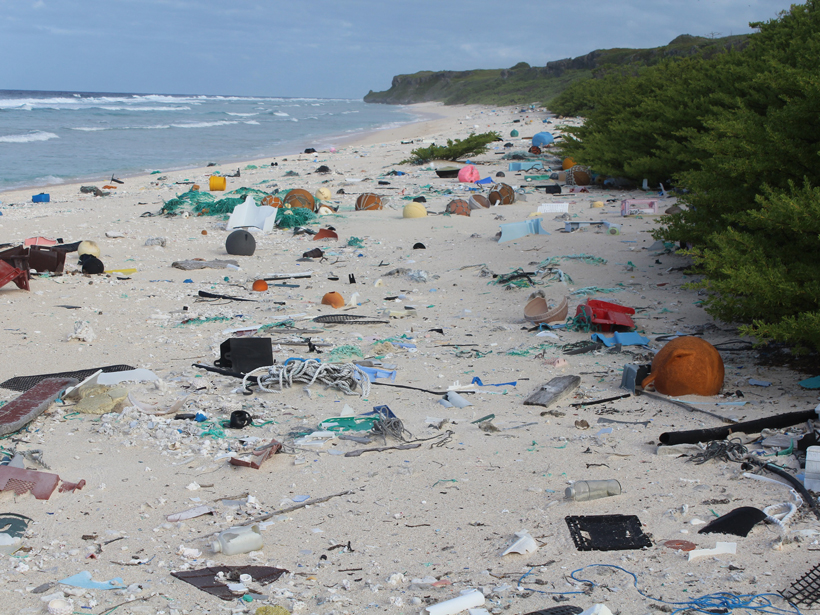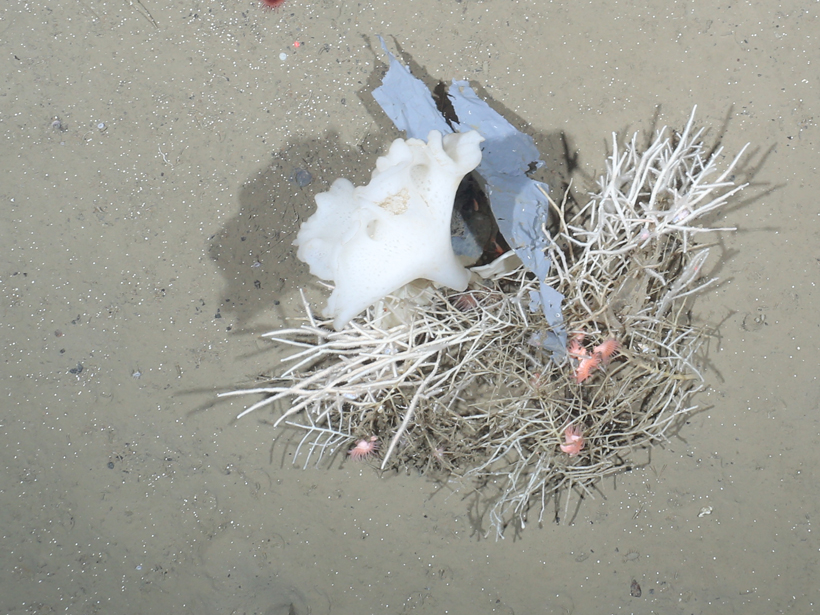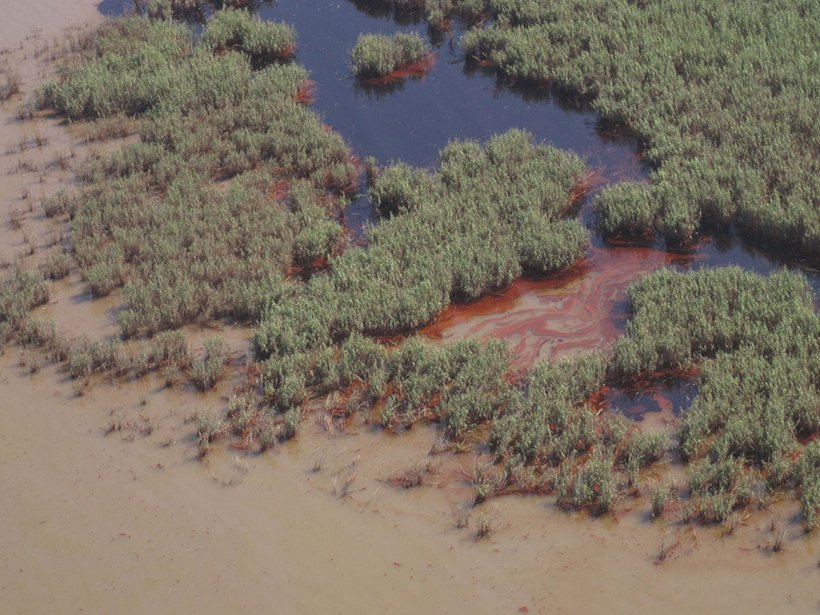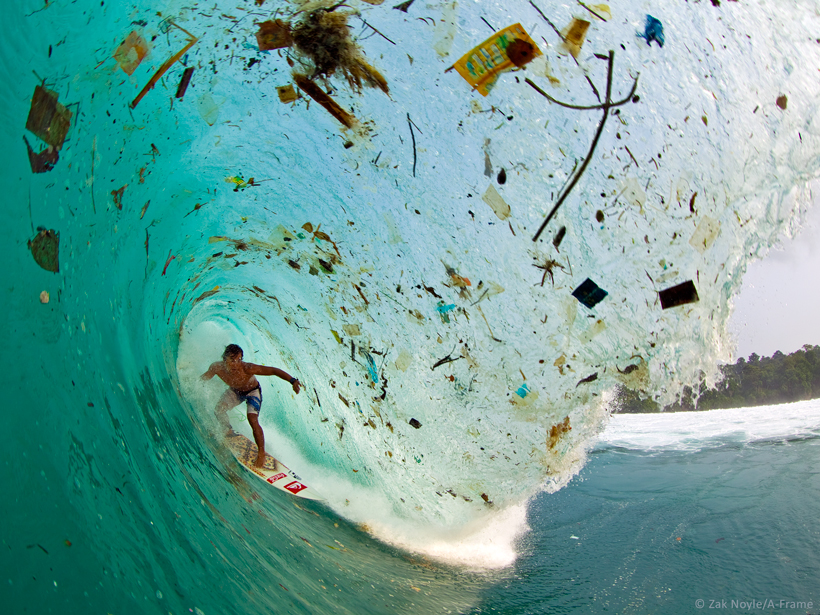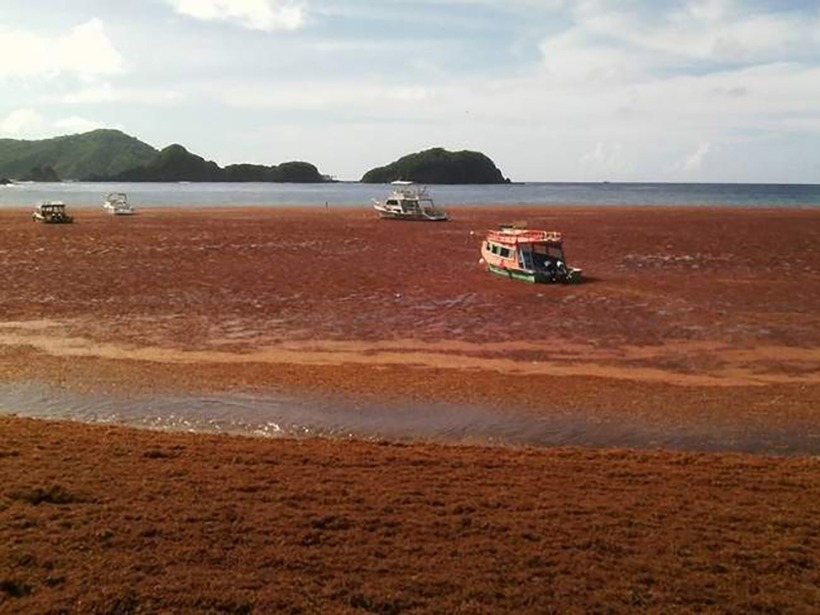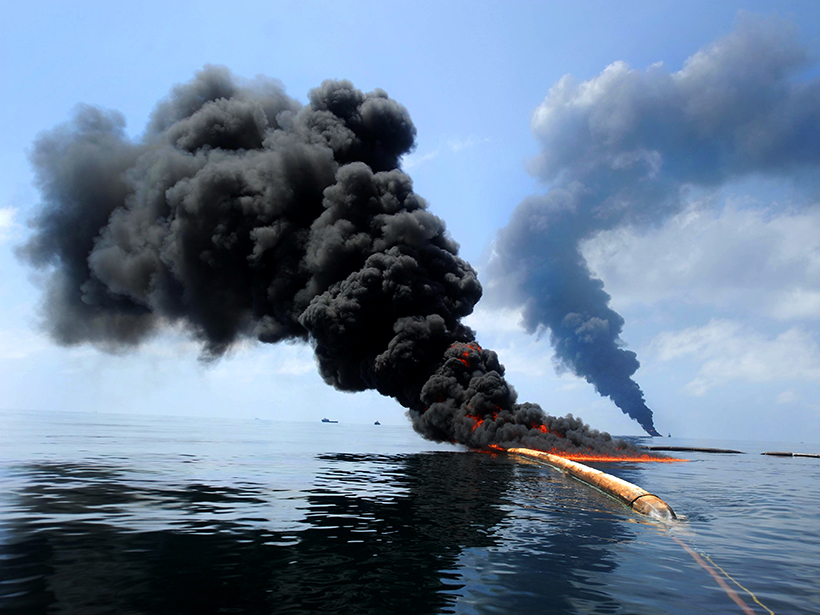A recent paper in Reviews of Geophysics describes the formation and behavior of oil-sediment residues in marine and coastal environments following an oil spill.
marine debris
Deepwater Horizon Dispersant Cleared the Air, New Model Shows
A simulation of oil and gas leakage during the Deepwater Horizon disaster finds that the main chemical dispersant used improved air quality for emergency responders.
Ocean Currents Push Mainland Pollution to Remote Islands
Marine protected areas, set up to conserve marine ecosystems and species, accumulate pollutants swept in from mainland shores by ocean currents.
Plastic Waste Knows No Bounds
Despite the vastness of Earth’s oceans, human plastic pollution overwhelms even remote corners.
Mounting Litter Spotted on Arctic Seafloor
At one location near Greenland, the density of undersea trash leaped by a factor of 23 in a decade.
Oil Residues Accelerate Coastal Wetland Losses
Coastal wetland loss after an oil spill can be more extensive than after a hurricane.
Developing a Remote Sensing System to Track Marine Debris
Workshop on Mission Concepts for Marine Debris Sensing; Honolulu, Hawaii, 19–21 January 2016
Sargassum Watch Warns of Incoming Seaweed
The Sargassum Watch System processes satellite data and feeds results to a Web portal, giving decision makers timely information on seaweed location and warnings for potential beaching events.
Deepwater Horizon Oil Lingered and Sank, Stuck to "Marine Snow"
A new study may explain how supposedly buoyant oil from the huge 2010 oil spill coated corals and other organisms on the ocean floor.
Oil Dispersants Deadly to a Common Estuary Species
Research on two dispersants used to break up spilled oil suggests that the chemicals can kill or harm a widely–found shrimp important to estuary habitats. The toxicity increases in less salty water.




